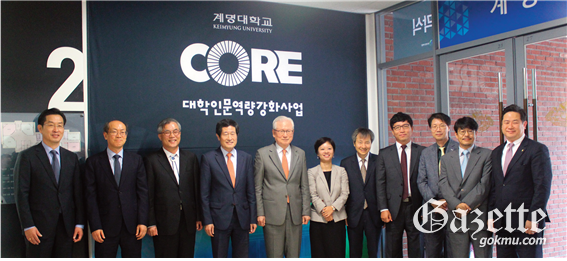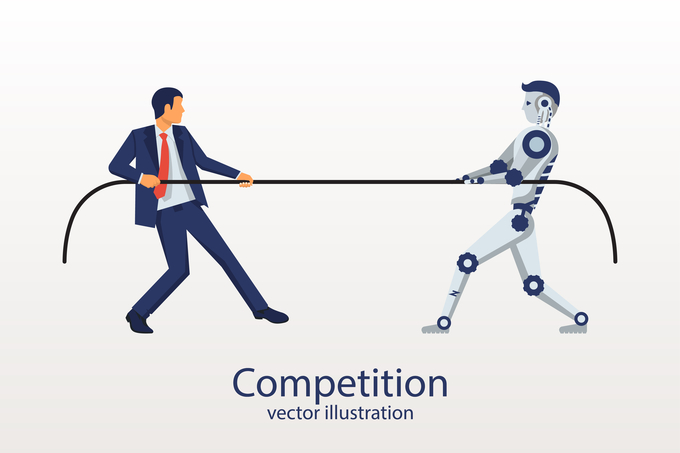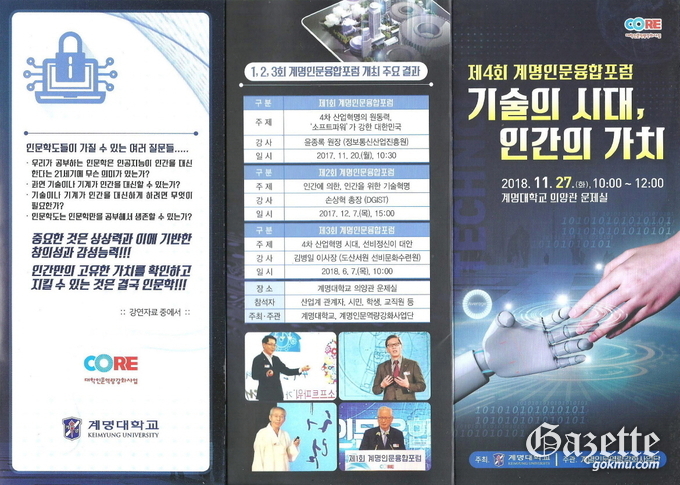
Humanities are in danger. The humanities are studies about original elements of humans and human culture, such as linguistics, literature, philosophy, and history. The humanities make a person educated, but not necessarily for a specific profession. Most people require a more specific area of study beyond the humanities. Thus, most Korean companies don’t want to hire humanities students anymore. It is not only a Korean problem but also the world’s problem. The popularity of studying the humanities has been decreasing since the financial crisis of 2007-
08. Many students want practical studies to get a good job and have a stable life. The world has mostly recovered from the financial crisis, but prospective college students are increasingly avoiding the humanities. According to the American Department of Education, while specialists in linguistics, politics, education and society dropped off sharply, students studying sport science, nursing, health care or engineering increased rapidly from 2008 to 2017. It is not only an American story; it is the world’s situation.

Then, why are the humanities important? Humanities are concerned with human society and culture. We’ve gained a great deal of knowledge over the last few thousand years by reading and learning from literature, history and philosophy. Thousands of people who have lived on earth have shared their experience and wisdom through the humanities. Even though we are living a hardscrabble life, that’s why we must not give up the humanities.
To cope with the difficulty of humanities in Korea, the government created a program for the revitalization of the humanities called CORE (initiative for College of humanities’ Research and Education) in 2016. It is the government’s first financially supported program for the humanities, providing 60 billion won over three years to 25 universities. Through it, those universities had to revise the humanities curriculum for the 21st century and the fourth industrial revolution. Keimyung University is one of them.
How was Keimyung selected for the CORE program over many other universities? KMU has a representative humanities college, which first established a department of English language and literature and department of philosophy. As time went on, KMU’s College of Humanities and International Studies has become the most affluent humanities college in Korea with 16 majors including international studies and regional studies like American Studies. The curriculum for each of these majors blends the humanities and social science, which was done for the first time in Korea at KMU. Because of this, the government thought we already have a great tradition for evolving humanities programs.

What has Keimyung CORE done for the last three years? There are too many changes to explain here, so only the main changes will be introduced. First, the CORE program has nine new interdisciplinary majors. Six majors combine humanities and non-humanities departments: Humanities IT Engineering, Humanities Business Consulting, Humanities E-culture, Humanities MICE, Humanities Medical Tourism and Humanities Mechanical & Automotive Engineering. Three majors combine only humanities departments: Border Studies, Emerging Market Area Studies and Korean Studies. Theses majors are unique, and can only be found at KMU. Through them, students can study and gain valuable work experience. These curriculums can be the most creative and practical of KMU CORE.
Second, there is a new mandatory double major or major and minor system. Students who started at KMU in ’17 and ’18 only must have a double major or a major and a minor. This makes them broaden their abilities. As mentioned, there are nine interdisciplinary majors in the CORE program in which only humanities students can choose. Through these, students can study both humanities and non-humanities subjects like business or
engineering. Students can choose to have a CORE major. If they choose to have a CORE major, they have the benefit of a reduced minimum number of credits. There are also changes in liberal arts called K-humanities. Only the ’17, ’18 humanities students have to take K-humanities classes required by CORE, not existing liberal arts classes. Of course, they can take other liberal arts classes that are not required by CORE, but those credits don’t count towards graduation. However, for graduation, they have to take more than five K-humanities classes.
Last, there many new CORE programs. There is a great diversity of opinions about the two rules mentioned above (double
major or major and minor and K-humanities). Because they are new, strange and mandatory, the students can’t easily accept the changes. However, there are also many great and helpful programs. With financial support of the government, CORE can help a lot of students to see the wider world using their liberal arts knowledge. Those experiences give them knowledge and great additions to their resumes. The programs provide many opportunities for students to gain valuable work-related experiences. The most popular programs provide international and domestic experience like studying abroad and regional research. Moreover, KMU CORE signed MOUs with some research institutes, so some students spend their vacations on internal and external placements. Besides these, there are more programs for training students majoring in the humanities.

Despite a lot of supported programs and plans, students haven’t given them much attention. There are notifications on the CORE website, and professors introduce the various choices, but only a few students have participated in CORE programs. One hundred students majoring in the humanities were interviewed randomly. Among them, 26 students knew just a little about CORE but have not participated in the programs because they didn’t know what programs there were. CORE can’t make sure all students know every programs, so students should search and register for them by themselves. Another 12 students, who didn’t pay attention to CORE, thought there weren’t worthy programs to attend. Of the 100 students, 48 thought it wasn’t helpful, or they didn’t recognize these programs were for the humanities, or thought it was not helpful to get a job. They said they can’t focus on their main major because of the double major or major and minor, which is a burden on them.
On the contrary, 52 students think CORE improves their university lives by helping them see their majors in the humanities positively. Most students like the double major or major and minor system. Engineering or business majors can find jobs more easily these days, but humanities students usually feel quite afraid to approach them. Fortunately, the new CORE majors make students more comfortable to approach these new studies with their own knowledge. Nevertheless, most students don’t understand why K-humanities exist. No one agrees with the curriculum. Among 100 students, 98 students mentioned K-humanities as the worst curriculum in CORE because it is not related to the humanities. They prefer to choose other liberal arts classes instead of K-humanities.
After government financial support ends in 2019, there will still be interdisciplinary programs for the double or minor major system and K-humanities. KMU CORE still tries to make better curriculum for students. Even if CORE ends soon, we shouldn’t ignore the importance of the humanities.








